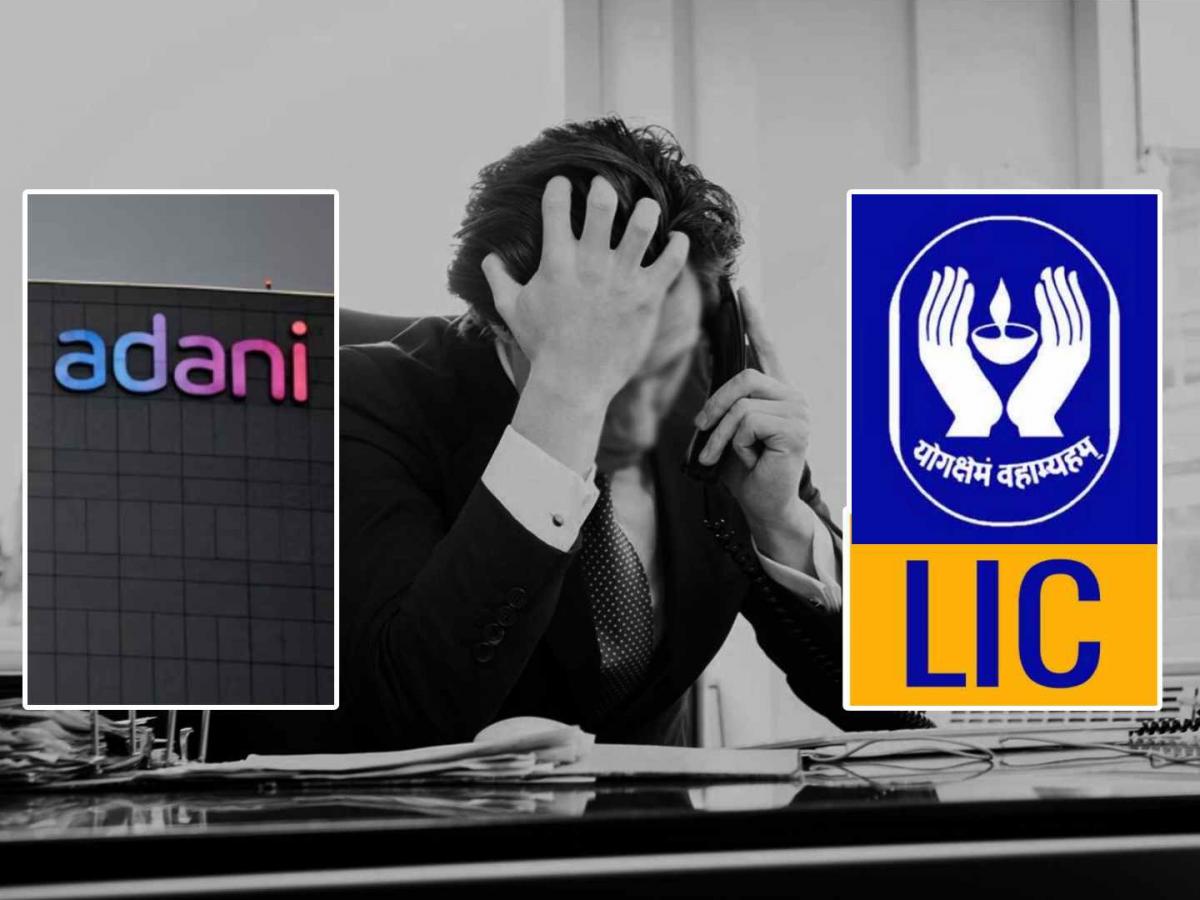The Life Insurance Corporation of India (LIC) faced a staggering loss of ₹12,000 crore in its Adani Group holdings during a single trading session, as shares of seven Adani companies plunged up to 20% on November 21. The sharp decline followed news of civil indictment charges against Adani Group’s founder, triggering panic across the stock market and raising concerns over the exposure of institutional investors to the conglomerate.
Adani Stocks Tumble, LIC Bears the Brunt
The fall in Adani Group stocks, spanning sectors like energy, infrastructure, and cement, was a direct response to allegations of bribery and financial misconduct involving the conglomerate’s top executives. LIC, a significant investor in the Adani Group, saw its holdings in a prominent ports company drop by over ₹5,000 crore alone, marking the steepest individual decline.
Other Adani Group entities, including green energy and cement firms, also experienced losses ranging from ₹381 crore to more than ₹3,000 crore in LIC’s portfolio. The combined erosion across seven Adani stocks amounted to ₹11,728 crore for LIC, highlighting the vulnerability of major institutional investors to volatility in specific holdings.
The substantial hit to LIC’s investments not only underscores the risk of concentrated exposures in volatile stocks but also reignites debates about institutional oversight in investment decisions involving high-profile companies.

Market-Wide Repercussions of the Adani Group Plunge
The Adani Group’s legal troubles and subsequent stock crash sent shockwaves across the broader market. The conglomerate’s collective market capitalization declined by almost ₹2 lakh crore within a single day, with many of its stocks hitting lower circuit limits, reflecting the intensity of the sell-off.
The allegations come in the wake of earlier accusations of stock manipulation and financial irregularities, which have already dented investor confidence in the Adani Group. For shareholders, particularly institutional ones like LIC, the legal proceedings amplify uncertainties surrounding the conglomerate’s financial stability and governance practices.
Market analysts note that the indictment of Adani executives could lead to prolonged volatility in the group’s stocks, potentially affecting the overall sentiment in sectors closely linked to its operations, such as renewable energy and infrastructure.
Impact on LIC’s Share Price and Portfolio Resilience
The turmoil in Adani stocks reverberated through LIC’s own share performance. On November 21, LIC’s shares closed at ₹883.75, reflecting a 1.44% drop from the previous day. Intraday trading ranged between ₹872.00 and ₹898.95, indicating heightened investor caution.
Despite this setback, LIC’s diversified portfolio and financial strength are expected to cushion the impact of the losses. However, the episode highlights the inherent risks of large-scale investments in a single corporate entity, particularly one with ongoing legal and regulatory scrutiny.
Experts emphasize the importance of diversification and prudent risk management for institutional investors like LIC to safeguard their portfolios against unexpected shocks. While LIC remains a robust financial institution, its exposure to high-volatility stocks like those of the Adani Group calls for a closer examination of its investment strategy.

Legal Indictments and Investor Concerns
The losses follow closely on the heels of fresh bribery allegations leveled against the Adani Group’s founder and executives. Federal prosecutors in the United States have charged the group with orchestrating a ₹2,000 crore bribery scheme to secure government contracts in India, which reportedly involved misrepresentation in disclosures to international investors.
This latest legal challenge compounds existing controversies surrounding the Adani Group, which has faced multiple allegations of financial mismanagement and regulatory violations. The indictment has not only shaken investor confidence but has also cast a shadow over the conglomerate’s future fundraising efforts.
In response to the developments, the Adani Group announced its decision to defer its proposed USD-denominated bond offerings, a move seen as an attempt to stabilize its finances amid rising scrutiny. The group has vehemently denied the allegations, terming them baseless and vowing to explore legal remedies to clear its name.
Broader Implications for Institutional Investors
LIC’s significant losses in Adani stocks bring to the forefront critical questions about the role of institutional investors in monitoring and managing portfolio risks. As one of the largest investors in India, LIC’s decisions have far-reaching implications for its policyholders and the broader market.
The incident serves as a wake-up call for institutional players to reassess their risk exposure to companies embroiled in legal or regulatory disputes. Analysts suggest that increased transparency and rigorous due diligence could help mitigate the financial fallout from such events in the future.
Despite the immediate impact, LIC’s long-term resilience remains intact, thanks to its well-diversified portfolio and robust financial foundation. However, the episode underscores the importance of striking a balance between high-reward investments and risk mitigation, especially when dealing with volatile sectors and entities under scrutiny.

